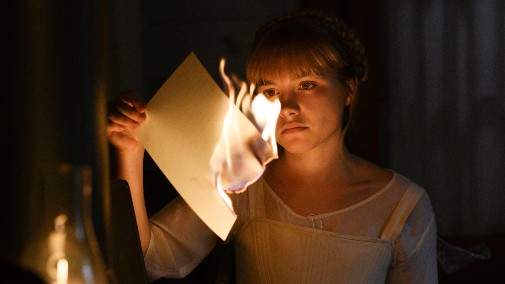
Greta Gerwig's Little Women is a bold adaptation of Louisa May Alcott's beloved classic in more ways than one. Structurally, it shatters the novel's chronology, making past and present, childhood and adulthood, talk to each other in a dialogue of echoes and rhymes. For instance, when Jo loses a sister in the wintery coldness of the present, Gerwig marries the moment to the memory of another kind of sisterly loss, when a wedding in warm colors was a harbinger of future loneliness for the heroine. Another element that makes this new adaptation so radically different from the previous ones is its treatment of Jo's sisters. No longer are Meg, Beth, and Amy March relegated to the periphery of the text. This 19th-century classic is called Little Women, after all, not Little Woman.
When it comes to its portrayal of Amy, the novel's most condemned character, the 2019 film is of particular innovation. We could almost say this Little Women redeems Amy March after centuries of villainizing her…
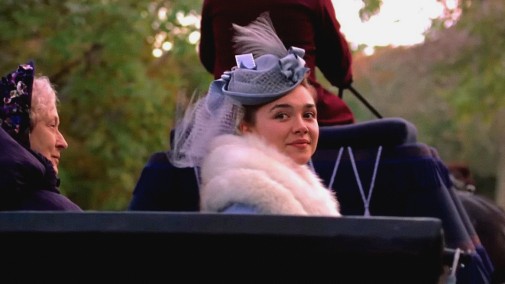
We first meet Amy in Paris, as she promenades through public gardens with her elderly Aunt. Bedecked in fuzzy furs, blue silks, and veiled millinery, she's a vision of plush Victorian wealth and a debutante's elegance. Her behavior, however, isn't as lady-like as all that. As soon as she sees Timothée Chalamet's Laurie on the street, the mask of a well-behaved society ornament is shed and we appreciate the spectacle of her exuberant personality. In one scene, Gerwig and actress Florence Pugh have introduced us to Amy's main characteristics as well as her more troubling contradictions.
Amy's a pragmatic young woman who knows how to please her elderly relative and thrives within a social environment built out of patriarchal prejudice and forced female submission. She plays the game instead of defying it like her rebellious older sister Jo. Still, Amy knows what she wants and the glint of childlike romanticism isn't completely drained from her eyes. Laurie makes the facade of the society lady unravel and we see the girlish wonder of the March's youngest daughter. She's effusive and ebullient, loud and even silly in her charming petulance. At least, it's charming when filtered through the innate charisma and star power of Florence Pugh.
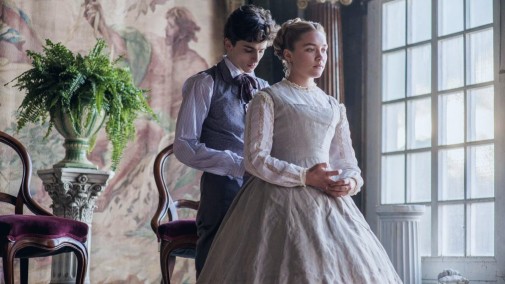
The introductory scene presents aspects of the character never again seen in such contrasting communion. The petulant dreamy romantic of a spoiled childhood mostly lives in the scenes of gold-tinted youth while the ambitious lady is reserved for the European present. However, the way one grew into the other is never regarded as inorganic or hard to believe. Part of the trick is how the role isn't divided by two actresses as is the custom; Pugh plays both the 12-year-old Amy and her adult counterpart, relying on body language and other actorly mechanisms to sell it. Some anachronistic clip-on bangs also help.
Another important thing to consider is how Gerwig gives context to Amy's choices. As a novel, Little Women is a bit limited by the perspective of its protagonist, which is hardly surprising when one considers how much Louisa May Alcott put herself into the character of Jo. However, this tends to make the other sisters more difficult to understand or view as tridimensional personalities. In this too, the 2019 adaptation bucks convention and paves its own way, using Alcott's other writing as a way to flesh out the novel's subtler themes and underwritten characters. No one benefits from this more than Amy.
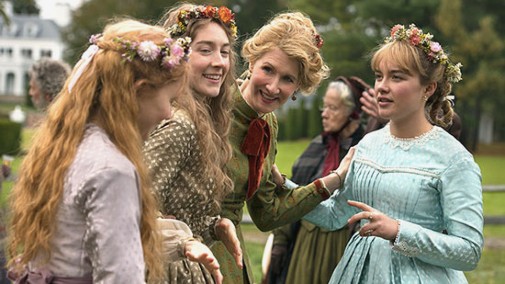
Her perceived faults of vanity and a desire for nice things are made understandable byproducts of an artist's love for beauty. Similarly, her more brattish behavior is regarded as flights of youth easily outgrown by the advent of maturity. Yes, she still burns Jo's adolescent manuscript but that action doesn't need to be seen as an unforgivable sin. Perhaps more crucially, her love affair with Laurie doesn't come out of nowhere, being heavily foreshadowed by hilarious pops of infantile infatuation that flower into genuine romantic affection. And while Amy may view marriage as an economic proposition, that doesn't signal a mercenary's heart but the uncompromising nature of a woman who knowingly lives within a system that sees her as subordinate to men.
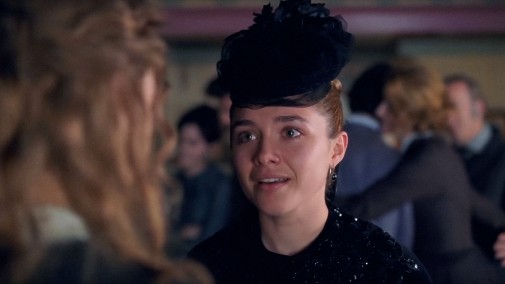
I confess to disliking Amy when I first read Little Women many years ago. As I grow older, however, I feel more and more affection towards this silly kid who grew into a confident woman. Gerwig's take on the character only solidifies my love of Amy March, Little Women's most underappreciated character.